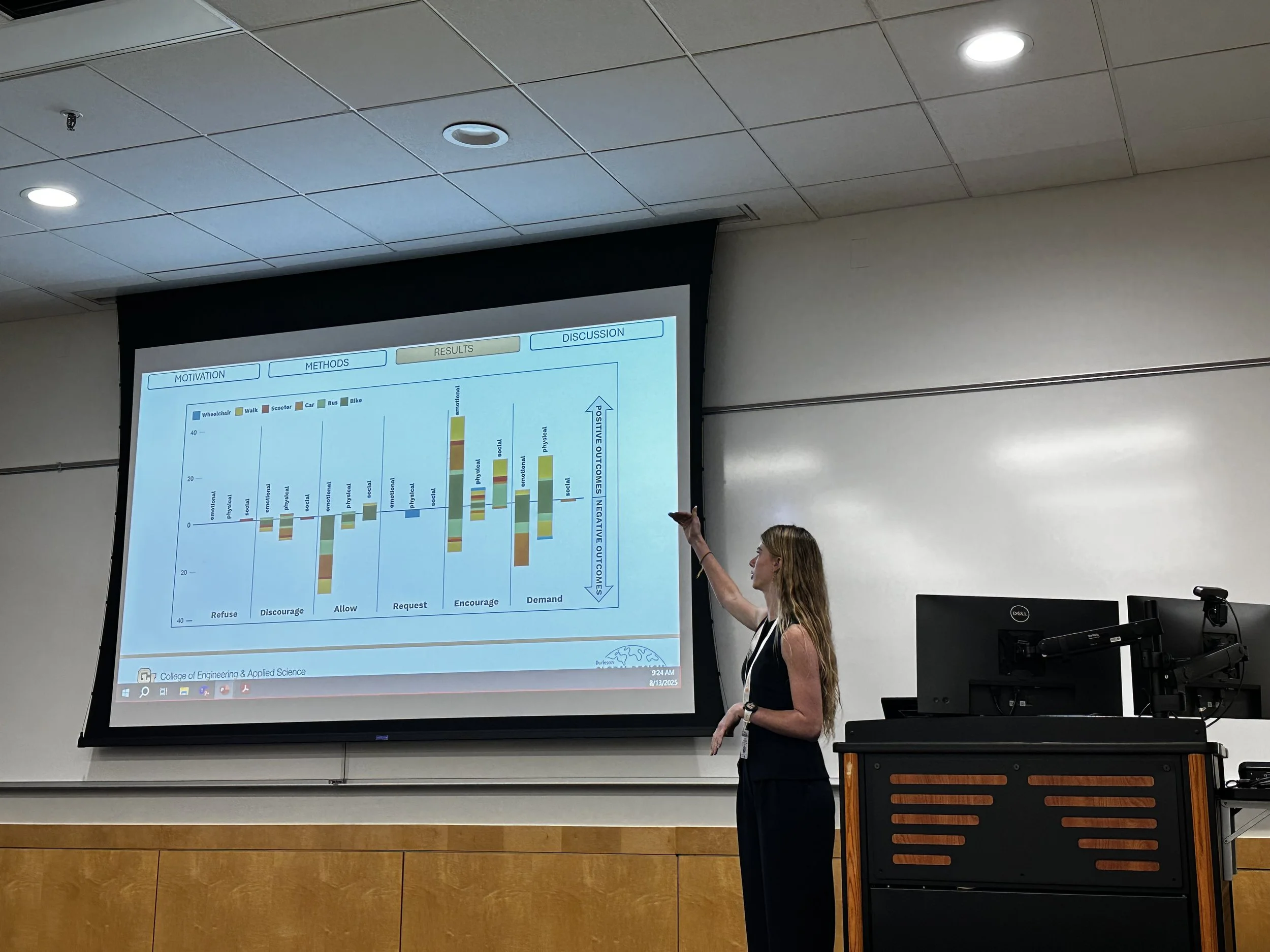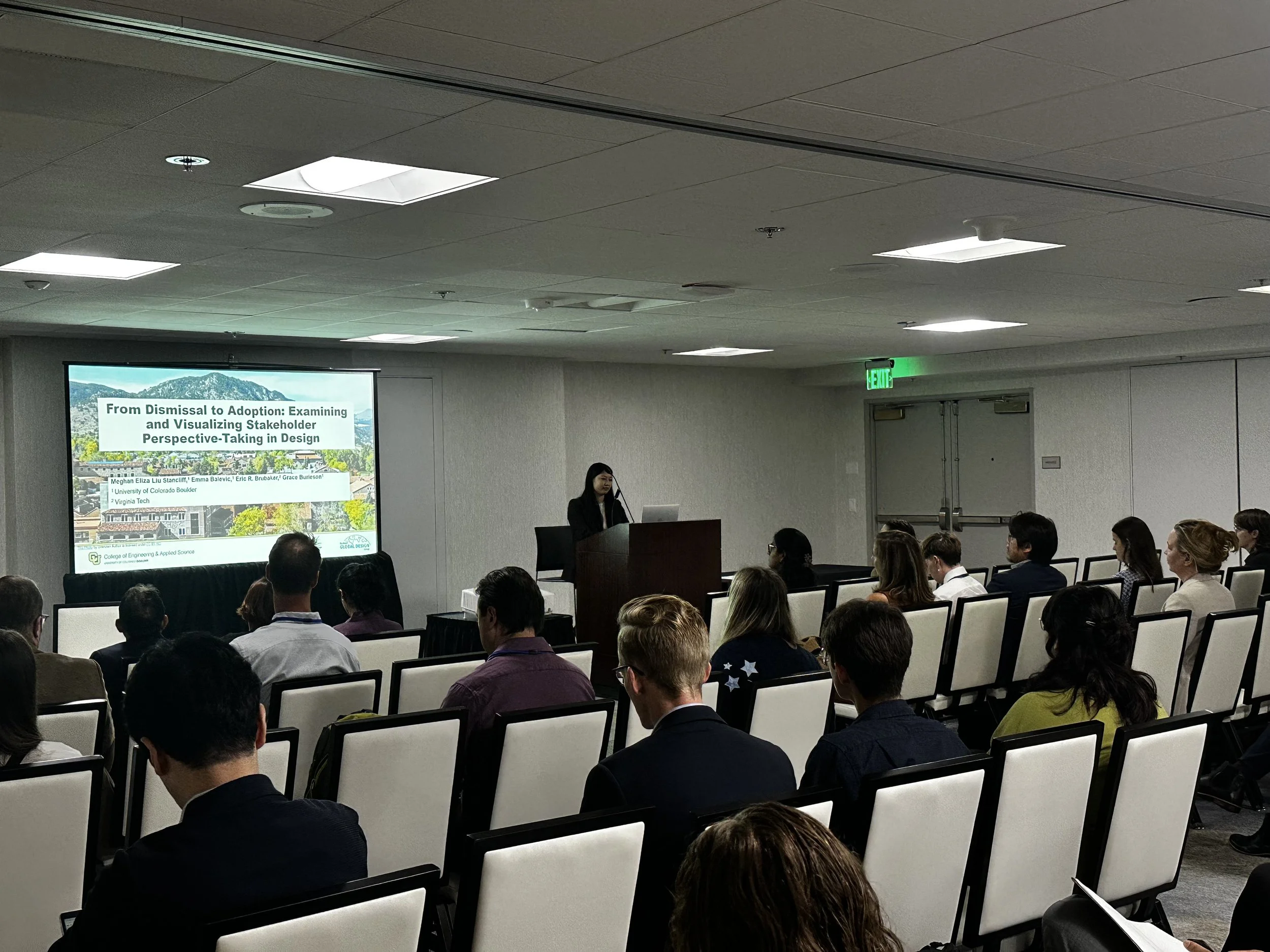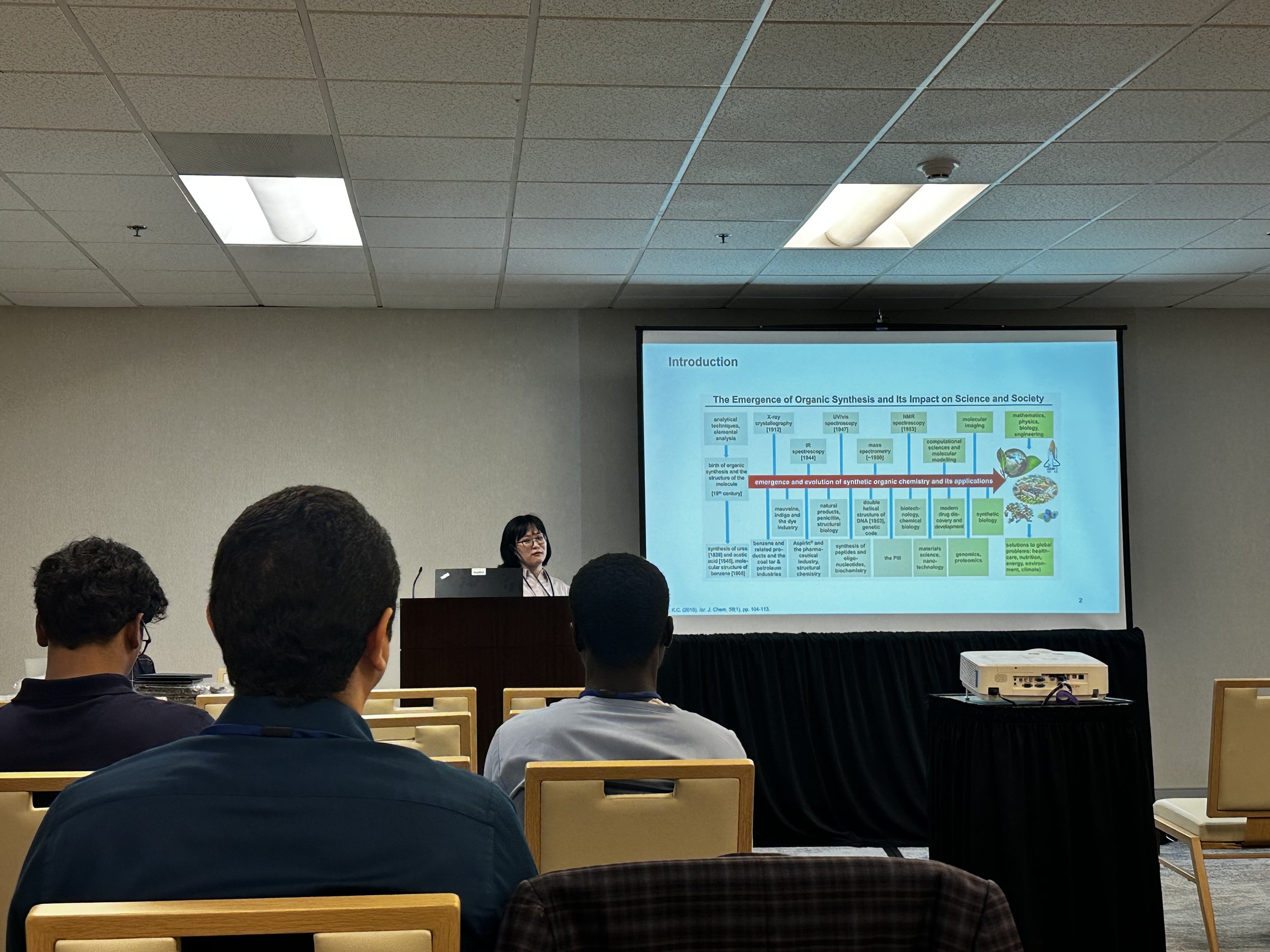Summer 2025 Conference Presentations
We were busy this summer! Five members of the Burleson Global Design Group presented at two different conferences: the Design Society’s International Conference on Engineering Design (ICED) in Texas and ASME’s International Design Engineering & Technical Conferences (IDETC) in California.
“Incorporating Contextual Factors in Back-End Design Stages: Development and Pilot Testing of the Contextual Product Testing Protocol”
At ICED, Carlota Serrano introduced the Contextual Product Testing (CPT) Protocol, a new framework designed to help designers systematically identify and incorporate contextual factors during the later (“back-end”) design stages of product development. Their research underscores how understanding environmental, socio-cultural, technological, economic, and other contextual insights can enhance long-term product adoption and ensure that solutions reflect stakeholder needs.
Through a pilot case study of an interactive toy chest, the study demonstrated how in situ observations and interviews can uncover context-specific barriers and enablers that inform actionable design recommendations and sustainable concepts. This paper was recognized with the Reviewer’s Choice Award at ICED 2025. Congrats, Carlota!
“Affordance-based design strategies to support well being: A case study of university of transportation”
At ICED, Olivia Wilburn presented our work investigating the potential for affordance mechanisms to be used in the design process to support well-being outcomes. To study affordance mechanisms and their links to well-being, semi-structured interviews were conducted with college students, focusing on their transportation to campus and well-being experiences. This study demonstrated a connection between affordance theory and well-being, promoting the use of affordance theory for a more human-centered approach that prioritizes well-being and positive impacts for people. This work was completed in collaboration with Dr. Christopher Mabey from Clemson University and some of his students.
“From Dismissal to Adoption: Examining and Visualizing Stakeholder Perspective-Taking in Design”
At IDETC, Meghan Eliza Stancliff presented our lab’s work expanding Dr. Elizabeth Rieken and others’ Stakeholder Perspective Taking Spectrum and introduced an original method of visualizing individuals’ and teams’ stakeholder perspective taking levels, SPT Signatures. This work aims to begin to understand how engineers interact with and represent stakeholders in design spaces. This ongoing research hopes to identify how designers’ personal and professional experiences might influence their stakeholder engagement. The study outlined in this paper will continue, with more data being collected in the Fall of 2025. This paper was also co-authored by PhD student, Emma Balevic, and collaborator, Dr. Eric Brubaker (Virginia Tech).
“An Analysis of Workloads Experienced by Scientists Working in a Chemical Wet Lab”
At IDETC, Diane Jung presented her work conducted in collaboration with her advisor Dr. Carson Bruns and dissertation committee member, Dr. Grace Burleson. In this work, they conducted and analyzed semi-structured interviews with scientists working in chemical wet labs, identified instances of burden experienced during experiments, and categorized them into one of the six NASA Task Load Index subscales. Informed by this analysis, they modified the workload definitions in the context of experimental chemistry. These results will help make informed decisions in designing research experiences that are safer, more efficient, and accessible.
"Advancing Engineering Design Research Through the Use of Qualitative and Participatory Methods”
At IDETC, Dr. Grace Burleson and her collaborator, Dr. Anastasia Ostrowski from Purdue, co-presented their paper highlighting the value of qualitative and participatory methods in engineering design research. Their work reflects how these approaches can expand theory, improve research crdibility, and address social impacts of design. The paper issues a call to action for more responsible participant engagement, stronger industry partnerships, and expanded training and mentoring on qualitative methods across the design research community. This paper was also co-authored by Drs. Eric Brubaker (Virginia Tech), Robert Loweth (UNC-Charlotte), and Catherine Berdanier (Penn State).






